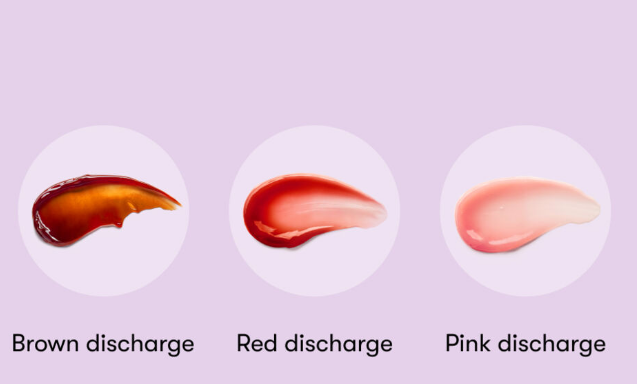Understanding Brown Discharge: Causes

Brown discharge can be a confusing and concerning issue for many women. It’s essential to understand what causes it, why it occurs without a period, what it means when you notice it after urination, and how it may relate to early pregnancy. In this comprehensive guide, we will explore the reasons behind brown discharge and answer frequently asked questions about it.
Also Read:- Green Poop Meaning: Causes, Concerns, and What You Should Know
What Causes Random Brown Discharge?
- Menstrual Blood: Brown discharge can sometimes be residual menstrual blood. When blood takes a little longer to leave the body, it can turn brown.
- Ovulation: Some women experience spotting during ovulation, which can appear as brown discharge. This is entirely normal and usually not a cause for concern.
- Hormonal Changes: Fluctuations in hormone levels, especially during puberty, menopause, or when starting or stopping birth control, can lead to brown discharge.
- Infection: Infections, such as bacterial vaginosis or sexually transmitted infections (STIs), may result in brownish discharge. It often accompanies other symptoms like itching or a foul odor.
- Cervical Changes: Any changes in the cervix, like polyps or cervical ectropion, can cause brown discharge. These conditions are usually benign but should be evaluated by a healthcare provider.
Why Do I Have Brown Discharge But No Period?
Brown discharge without a period can be perplexing. Several factors could explain this phenomenon:
- Implantation Bleeding: For some women, brown discharge could be a sign of implantation bleeding, indicating early pregnancy.
- Stress: High stress levels can disrupt your menstrual cycle and lead to brown spotting without a full period.
- Medications: Certain medications, including birth control pills and intrauterine devices (IUDs), can cause irregular bleeding patterns.
- Perimenopause: As you approach menopause, hormonal changes can lead to sporadic brown discharge without a regular period.
- Medical Conditions: Some underlying medical conditions, such as thyroid disorders or polycystic ovary syndrome (PCOS), may affect your menstrual cycle.
Why Is It Brown When I Wipe After Peeing?
Brown discharge when you wipe after urinating can have various causes:
- Urine and Vaginal Mix: Sometimes, brown discharge can mix with urine, giving it a brownish appearance.
- Infections: Infections in the urinary tract or vagina may lead to brown discharge when you wipe.
- Cervical Issues: Problems with the cervix, like inflammation or polyps, can result in brown discharge, which may be more noticeable when wiping.
- Menstrual Blood Residue: Residual menstrual blood can be expelled from the vagina after urination.
What Does Brown Discharge Look Like in Early Pregnancy?
During early pregnancy, brown discharge can be a source of anxiety. However, it may not always be a cause for concern:
- Implantation Bleeding: Some women experience light brown spotting during the implantation of the embryo into the uterus lining.
- Hormonal Changes: Pregnancy hormones can lead to changes in vaginal discharge, making it appear brownish.
- Cervical Changes: Increased blood flow to the cervix during pregnancy can sometimes result in brown discharge.
FAQs Brown Discharge
Q1. Is brown discharge normal?
Brown discharge can be normal in certain situations, such as during ovulation or as a sign of implantation during early pregnancy. However, if it persists or is accompanied by other symptoms, it’s essential to consult a healthcare provider.
Q2. When should I be concerned about brown discharge?
You should be concerned if the brown discharge is accompanied by pain, foul odor, itching, or persists for an extended period. It’s crucial to seek medical advice in such cases.
Q3. Can birth control cause brown discharge?
Yes, birth control methods like pills, patches, and IUDs can sometimes lead to irregular bleeding patterns, including brown discharge.
Q4. Can stress cause brown discharge?
High stress levels can disrupt your menstrual cycle and contribute to brown spotting or discharge.
Q5. How can I prevent brown discharge?
Preventing brown discharge may not always be possible, as it can be caused by various factors. Maintaining good overall health and managing stress can help regulate your menstrual cycle.
In conclusion, brown discharge can result from a range of factors, some of which are entirely normal, while others may require medical attention. If you have concerns about your vaginal discharge, it’s always best to consult a healthcare provider for a thorough evaluation and guidance tailored to your specific situation. Remember that open communication with a healthcare professional is crucial for maintaining your reproductive health and well-being.








